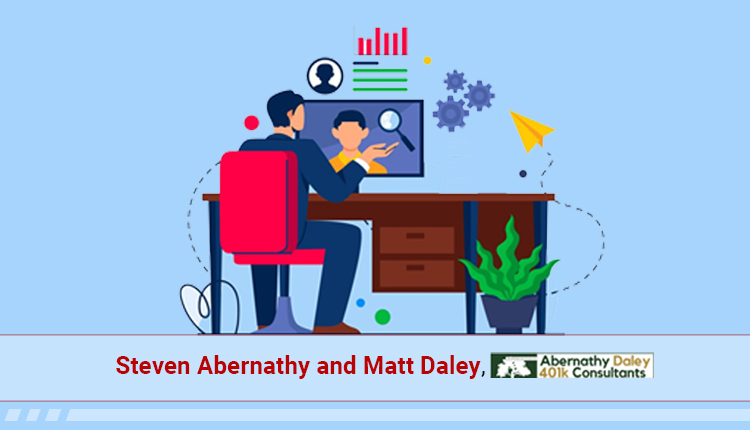Amid economic instability and a strained political climate, the average American’s ability to retire comfortably is getting further out of reach. A survey performed by the Federal Reserve System discovered an alarming trend: While many working adults have begun saving for retirement, a significant portion remain unprepared with no savings at all. This trend has persisted since 2019.
Knowing this, many states across the country have mandated that businesses offer some formal retirement savings plan. However, properly managing retirement plans comes with its own set of complexities. Managing a 401(k) plan is no longer just an administrative task—it’s a strategic opportunity for HR leaders to drive employee satisfaction, financial wellness, and talent retention. Yet, as HR teams become more involved in tech-driven initiatives, many overlook a critical practice: regular benchmarking audits of their retirement plans.
Measuring Up: The Importance of 401(k) Benchmarking
A well-managed 401(k) plan does more than meet legal requirements—it’s a powerful talent acquisition and retention tool. Today’s workforce is looking for meaningful benefits that support long-term financial security, and a 401(k) plan with competitive fees and investment options can give companies an edge in the marketplace.
Catch more HRTech Insights: HRTech Interview with Meg Donovan, Chief People Officer at Nexthink
A benchmarking audit evaluates a company’s 401(k) plan against industry standards, comparing fees, investment options, and overall structure. By ensuring the plan is competitively priced and aligns with best practices, benchmarking helps employers meet their fiduciary obligations and secure long-term employee financial wellness.
By conducting regular benchmarking audits, HR professionals can ensure their company’s 401(k) plan is not only compliant but also strategically positioned to attract and retain top talent. A plan that offers low fees and high-quality investment options demonstrates a company’s commitment to its employees’ financial wellness—fostering loyalty and engagement across the workforce.
For HR professionals overseeing employee benefits, now is the time to leverage benchmarking audits to optimize 401(k) plans. These audits ensure companies meet fiduciary standards while offering a cost-effective, competitive retirement plan—ultimately protecting the business and its employees.
Despite these benefits, many companies neglect to conduct these audits. With 401(k) plan structures evolving and employee expectations rising, neglecting these audits can have major legal and financial repercussions. Without regular evaluations, businesses risk paying for subpar plans, saddling employees with high-cost investment options that erode retirement savings. This delays employees’ retirement plans and exposes the company to legal challenges and financial penalties under the Employee Retirement Income Security Act (ERISA).
Fiduciary Responsibility and the Risks of Non-Compliance
ERISA mandates companies act in the best interest of their employees when managing 401(k) plans. This includes offering investment options that maximize returns and keeping fees reasonable. Employers risk breaching their fiduciary duties and facing potential legal action without annual benchmarking audits.
Failing to comply with ERISA standards can also damage a company’s reputation as an employer. Employee expectations are changing. They’re no longer settling for the bare minimum from their employer’s offerings. They want stability and financial options, so a poorly managed retirement plan can impact retention and recruitment efforts. So, why are so many companies failing to conduct benchmarking audits?
Combining Fiduciary Expertise and Technology: The Key Enabler to Optimize 401(k) Plans
One of the main reasons HR departments often delay benchmarking audits is the complexity of managing retirement plans. HR teams often struggle to balance the many demands of their roles with the need for regular, detailed analysis of benefits offerings. However, strategically leveraging a combination of independent, fiduciary plan advisors and newly available technologies can enable HR teams to improve employee plan understanding, pinpoint compliance gaps, and elevate employee savings.
Steps to Ensure a Compliant, Competitive 401(k) Plan
For HR leaders looking to optimize their 401(k) plan, the following steps can help ensure compliance, cost-effectiveness, and employee satisfaction:
- Benchmark Regularly for Optimal Performance: Aim to benchmark the 401(k) plan annually to ensure fees and investment options remain competitive and aligned with industry standards.
- Harness External Resources for Business Growth: Combining expert advisor insight with technology platforms can help streamline the benchmarking process, reduce administrative burdens, and provide real-time insights into plan performance, improving overall plan efficiency.
- Evaluate Fees for Better Returns: Examine the 401(k) plan’s fee structure to identify excessive or unnecessary costs. Compare these fees to industry benchmarks to ensure your plan is cost-effective. Consult a 401(k)-plan advisor if needed.
- Don’t Overpay – Negotiate with Providers: Armed with benchmarking data, business leaders can negotiate with their current provider to secure better rates or explore alternative providers who offer more competitive options.
- Create a Culture of Communication: Transparency is key. Regularly update employees on any changes to the plan and ensure they understand the value of the low-cost investment options available to them.
Benchmarking for Long-Term Success
Embracing benchmarking is a core component of a 401(k) strategy. By reviewing the company’s retirement savings plan, HR leaders can take the necessary steps to ensure they are protecting their company’s bottom line, meet fiduciary obligations, and offer a retirement plan that supports the long-term financial wellness of their employees. In doing so, businesses position themselves as employers of choice, equipped to attract and retain top talent in a competitive job market. Most importantly, they can be a catalyst for helping guarantee their employees have the resources and benefits needed to secure their financial future.
Read More on Hrtech : HRTech Interview with Augusto Ruiz-Eldredge, COO at TempoPay (acquired by PayMedix)
[To share your insights with us, please write to psen@itechseries.com ]
-
About the Authors
This guest article was co-authored By Steven Abernathy and Matt Daley, Abernathy-Daley 401k Consultants

